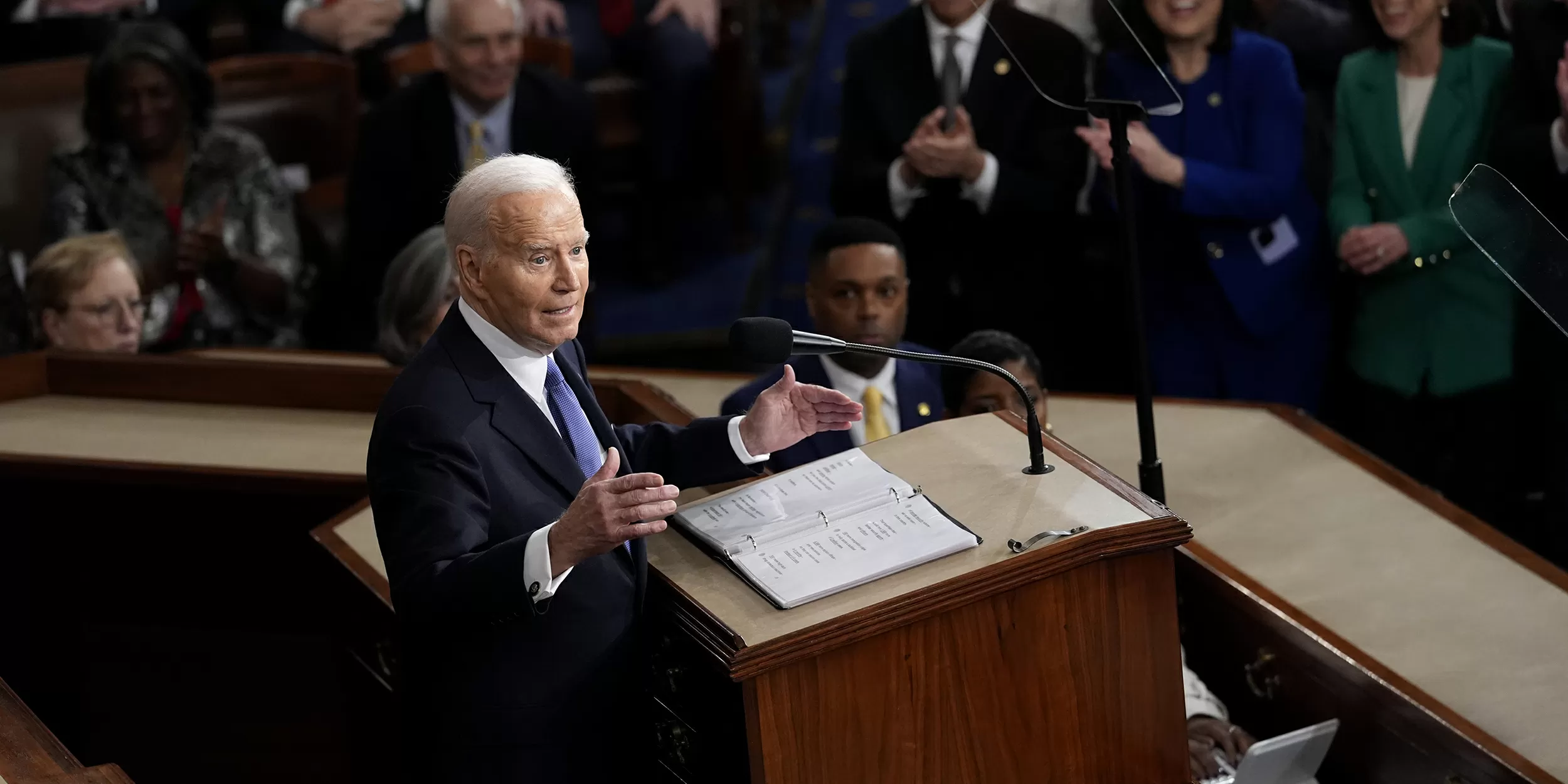In his highly anticipated State of the Union address, President Joe Biden addressed a wide range of issues facing the nation, from the ongoing pandemic to the economy and racial justice. However, one glaring omission from his speech was the lack of mention of the “forever war” in the Middle East.
For nearly two decades, the United States has been embroiled in conflicts in the Middle East, with no clear end in sight. Despite promises from previous administrations to end these wars, they have continued to drag on, resulting in countless lives lost and trillions of dollars spent. Yet, in his first State of the Union speech, President Biden failed to acknowledge this ongoing issue.
This silence is concerning, especially considering the fact that Biden had promised to end the “forever war” during his campaign. In fact, just a few months ago, he ordered the withdrawal of all U.S. troops from Afghanistan by September 11, 2021. However, his failure to mention the ongoing conflicts in the Middle East in his State of the Union address raises questions about the administration’s commitment to actually ending these wars.
The lack of mention of the “forever war” in the Middle East is not just a mere oversight, but a reflection of the larger issue of the U.S. government’s tendency to prioritize domestic issues over foreign policy. While it is important to address pressing issues at home, it is also crucial to acknowledge and address the ongoing conflicts and their impact on the global community.
The omission of the “forever war” in the Middle East from Biden’s speech is also concerning in light of recent developments in the region. The U.S. is currently involved in ongoing negotiations with Iran over its nuclear program, and tensions between Israel and Palestine have once again escalated. These issues cannot be ignored and require the attention and action of the U.S. government.
Furthermore, the lack of mention of the “forever war” in the Middle East also disregards the sacrifices made by the brave men and women serving in the military. For years, they have been deployed to the region, risking their lives and being separated from their families, with no clear end in sight. It is a disservice to them and their families to not even acknowledge their ongoing service and sacrifice.
The absence of any mention of the “forever war” in the Middle East in Biden’s speech is also a missed opportunity to address the humanitarian crisis in the region. The ongoing conflicts have resulted in the displacement of millions of people and have left many without access to basic necessities such as food, clean water, and healthcare. As a global leader, the U.S. has a responsibility to address these issues and provide aid to those affected by the conflicts.
Moreover, the lack of mention of the “forever war” in the Middle East also raises concerns about the administration’s foreign policy priorities. It is crucial for the U.S. to have a clear and comprehensive foreign policy approach, especially in such a volatile region. By not addressing the ongoing conflicts in the Middle East, the administration is sending a message that these issues are not a priority.
In conclusion, while President Biden’s State of the Union address touched on many important issues, the lack of mention of the “forever war” in the Middle East is a glaring omission. It not only disregards the ongoing conflicts and their impact on the global community, but also raises concerns about the administration’s commitment to ending these wars. As a nation, we must not turn a blind eye to these issues and demand that our government take action to address the “forever war” in the Middle East. Only then can we truly move towards a more peaceful and just world.





